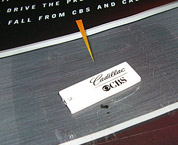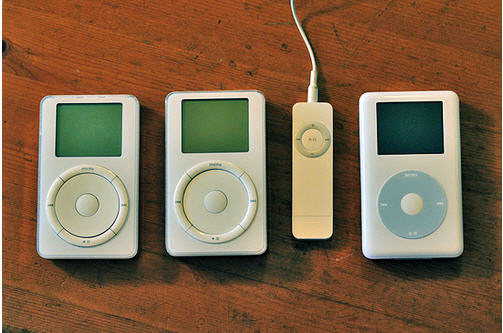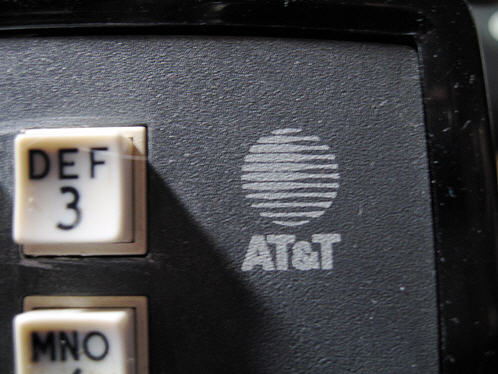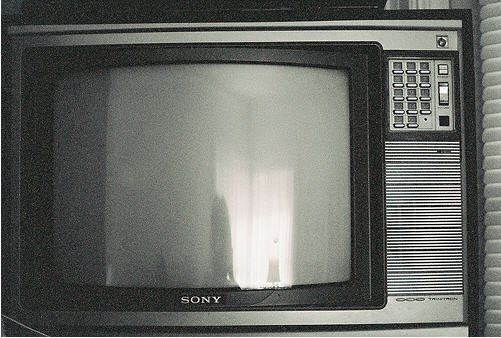The short answer: when it’s no longer new, of course—early adopters are the pawns in the great game of consumer electronics, easily sacrificed by both sides in order to fuel product launches, establish word of mouth, and help discover any 1st-gen bugs. (*cough* iPhone *cough*) SmartMoney says on average, wait six months after a product is released before buying it, but they also provide a list of specific advice for things like cellphones, computers, and cameras.
technology

Tiny USB Flash Drive In Entertainment Weekly
CBS and Cadillac are running a fancy-schmancy new ad campaign in the September 21st issue of “Entertainment Weekly” (the one with Britney on the cover) that includes a free “world’s smallest” 128MB flash drive. It doesn’t appear to be in the issues for sale on stands, so if you know anyone who subscribes, ask them for their copy.

Are Bundled Packages A Threat To Privacy?
The L.A. Times read the privacy policies of several bundled service providers and found that they are feverishly monitoring their subscriber’s activities. With the ability to monitor internet, phone, and television preferences, bundled service providers are able to track nearly every aspect of their subscriber’s digital lives. While Google retains personally identifiable for less than two years, some ISPs like Time Warner cling to your data for an astounding fifteen years in order to “comply with tax and accounting requirements.” It gets worse.
There are red flags to be found in each telecom provider’s privacy policy. A close reading of Time Warner’s policy reveals:

Federal Government Boldly Declares: "It Is Impossible To Inspect Our Way To Safety"
Inspections will not keep Americans safe from potentially dangerous foreign imports, according to a Presidential working group representing 12 federal agencies. The working group believes that the sheer number of products arriving at our ports – goods worth $2 trillion, last year – make the development and deployment of an inspection regime impossible. The alternative inspires little confidence.

Coming Soon To Paris, Bluetooth Ads For Mobile Phones
Marketers in France are planning to beam location-specific ads to your phone via Bluetooth, the common short-range wireless transfer technology that’s now included in nearly every new cellphone, reports Reuters. Currently under consideration is just what sort of ad would be compelling enough to tempt consumers to opt in on such messages, since there’s no way advertisers can force you to accept Bluetooth communications.

Coming Soon To Podcasts, More Advertising!
The advertising industry has developed new and innovative ways to generate cash from podcasts. At this early stage, the ideas are nothing more than substance-free buzzwords; there is a promised “multifront initiative” that features “improvements in technology.” We don’t know what that means to the average podcast listener, but wow, doesn’t it sound exciting? The few concrete ideas that have emerged are unimaginative and dated. From the New York Times:
Ms. Bratton, who is an online advertising industry veteran, said she believes she has found at least one good format for running advertisements within podcasts. In addition to placing a sponsor’s advertisements at both ends of a show, she also inserts an advertisement in the middle.

Delta Blames Seven-Hour Flight Delay On "Decades-Old Radar And Analog Air Traffic Control System"
Delta customer and Consumerist reader Rebekah emailed Delta over concerns about recent and extreme airline delays, threatening to cancel her Delta American Express and taking her miles with her. We’ll let it and the Delta Customer Care reply speak for themselves…

iPods May Affect Pacemakers
Thinking of buying Gramps an iPod for his birthday? If he has a pacemaker, you might want to hold off according to a new study “presented by a 17-year-old high school student to a meeting of heart specialists on Thursday.” A high school student? Yeah!

FCC Requires "Consumer Alert" Labels For TVs Affected By The Switch To Digital Television
The FCC will require retailers to warn consumers that certain television models will not work without additional equipment after the conversion to digital television in early 2009. The FCC nicely asked retailers to help educate the public, but concluded that voluntary efforts are “not working.”

Apparently There Are Still People Who Have Analog Cellphones
Do you have an analog phone? No, not you. That guy over there with the Betamax. You do? Well, you should just accept that time and technology marches forward and upgrade your phone. The old analog system is going bye-bye next year, and Cingular is charging you $5 a month for no reason other than you still have an old crappy phone. Should they do this? Probably not. But they are.

The Conversion to Digital Television Is Going To Be Unpleasant
Congress has ordered broadcasters to shut off old-style analog TV broadcasts by Feb. 17, 2009, and replace them with sharper digital ones. When that happens, millions of households with pre-digital TVs that rely on antennas will need to have purchased and installed digital converter boxes that will cost a minimum of $60 each.
Portable Cellphone Booth
Mobile privacy booths for cellphone users. Inextricably set to an Aphex Twin track.
A Worse Virus Than Mac Trojans: Bad AP Journalism
According to this piece by the Daring Fireball blog dissecting an AP article on the recent rumors that Macs are susceptible to viruses, sometimes journalism is fluffy and insipid.

Microsoft Fingerprint Reader Does Passwords, Not Security
We hate remembering passwords. We have enough arbitrary code phrases in our life to remember, like the one we have to try to remember when our girlfriend cinches that plastic sack over our head. So Microsoft’s Fingerprint Reader software seemed pretty cool to us.

Fly the Friendly Skies in a Coffin
Call it “Standing Tomb Only” airplane seating, a new cost-cutting measure proposes shuttling passengers across the sky strapped into coffin-sized spaces.

Microsoft Declines Releasing Fix For Data-Destroying Worm
Despite the fact that tomorrow is D-Day for the computer worm lurking in many unsuspecting users’ systems — causing it to suddenly activate and destroy all of their Microsoft Office files — Microsoft has let everyone know that they won’t be releasing a fix for the Kama Sutra worm until — appropriately enough — Valentine’s Day.


